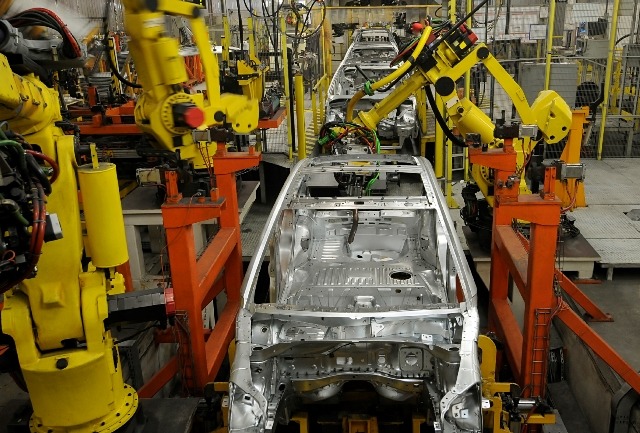
Manufacturing in America
That was the title for last week’s symposium sponsored by Siemens that was accompanied by the following tagline:
Community. Collaboration. Innovation.
The symposium revolved around a series of talks from End-Users, OEMs, and other industry experts. There was a strong focus on the automotive industry, due in part to its high level of adoption of automation techniques (coined: ‘advanced manufacturing’ at the symposium).
By far the most discussed aspect from the symposium (and I guess this is the “community” theme) regarded people and workforce. Both Ford Motor Company and General Motors related a serious need for Control Engineers. They have many open positions for which they simply cannot find skilled workers. They feel that manufacturing has an image problem. Many recent graduates still have a decades old view of it: think dirt, soot and smoke. When in reality, modern-day factories are clean, efficient, and impressive. Over the next 10 years, even more baby-boomers are going to leave the workforce so the problem is not going to resolve itself organically.
I must say as the only person in the theater under the age of thirty, I felt inspired and my reaction the whole time was: this is really optimistic stuff. Of course there were the occasional “damn kids and their text messaging” (slight hyperbole there) comments, but by and large it was pretty positive. Even the Governor of Michigan recognized the issue. He’s getting the ball rolling to link the demands of industry with the suppliers, in this case schools; then eventually he wants to start a market so that companies interact directly with colleges to define their needs.
Both talked about a need for Control Engineers and IT specialists to work more closely (“collaboration” theme). Of course when your control network is Ethernet-based like PROFINET, this makes obvious sense.
One of the OEMs, Comau, is very focused on innovation and in that respect their COO gave a talk on Total Cost of Ownership. This is something we touch on in our one-day training classes as the biggest benefit to using a fieldbus: sure you save costs on the initial hardware required to connect your devices, but the lion’s share comes from the long term (reduced downtime, maximized throughput, etc.) benefits.
–Michael Bowne
